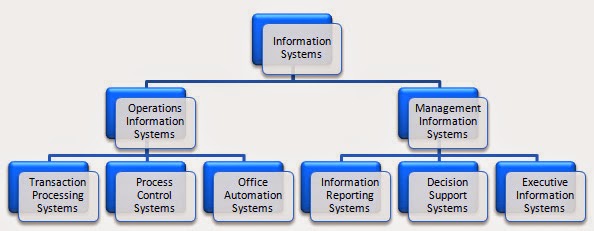The basic goal of information management is to harness the information resources and information capabilities of the organization in order to enable the organization to learn and adapt to its changing environment (Choo 1995, Auster and Choo 1995). Information creation, acquisition, storage, analysis and use therefore provide the intellectual latticework that supports the growth and development of the intelligent organization. The central actors in information management must be the information users themselves, working in partnership with a cast that includes information specialists and information technologists.
Information management must address the social and situational contexts of information use—information is given meaning and purpose through the sharing of mental and affective energies among a group of participants engaged in solving problems or making sense of unclear situations. Conceptually, information management may be thought of as a set of processes that support and are symmetrical with the organization’s learning activities. Six distinct but related information management processes may be discerned (Fig. 2): identifying information needs, acquiring information, organizing and storing information, developing information products and services, distributing information, and using information (Davenport 1993, McGee and Prusak 1993).
Information Needs:
The identification of information needs should be sufficiently rich and complete in representing and elaborating users’ true needs. Since information use usually takes place in the context of a task or problem situation, it is helpful to recognize that information needs consist of two inseparable parts (Taylor 1986, 1991): that pertaining to the subject matter of the need (what information is needed), and that arising from the situational requirements of utilizing the information (why is the information needed and how it will be used).
Asking questions such as, is the problem will or poorly structured? is the goals specific or amorphous, is the assumptions explicit and agreed upon, and is the situation new or familiar, will indicate the kinds of information that could be of greatest value to the user. Depending on the information use requirements, information could emphasize hard or soft data, elaborate existing goals or suggest new directions, help define problems or make assumptions explicit, locate historical precedents or provide future forecasts, and so on. Identifying information needs therefore not only involves determining the topics of interest to the user, but also the attributes of the information to be provided that will enhance its value and usefulness.
An accurate description of information requirements is a prerequisite for effective information management. Ironically, systems designer often take this for granted and assume that information requirements can be quickly determined by examining existing paper flows and data flows. Similarly, senior managers believe that it is the information specialist’s job to identify their information needs, and do not assume the ‘information responsibility’ of defining in detail what information they require (Drucker 1994). In reality, particular information needs will have to be elicited from individuals. Unveiling information needs is a complex, fuzzy communication process. Most people find it difficult to express their information needs to their own satisfaction. Personal information needs have to be understood by placing them in the real-world context in which the person experiences the need, and to the ways in which the person will use the information to make sense of her environment and so take action. http://www.InfosDemocracy.com

No comments:
Post a Comment
Prince S. Eric John is an author and a well known expert in the direct response copywriting & digital marketing Industry, committed to teaching people real online and offline marketing strategies that drives traffic and generates sales!
Leave Your comment below and See how I can assist you with any request